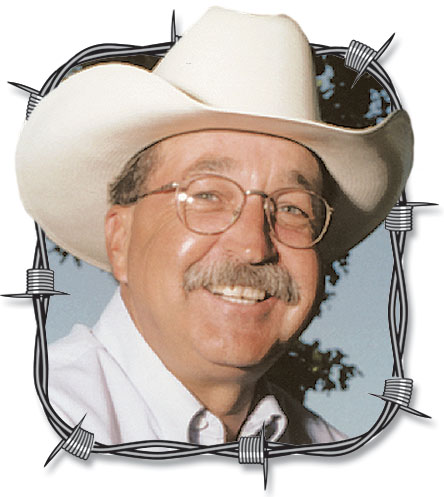
As a kid, I used to dread this time of year. By now we usually had all of the corn hoed, the second cutting of alfalfa hay was in the barn, and the summer heat would begin to create little wavy patterns in the creek bottom air, enough to make one think that they were looking at a mirage in the desert.
Just when I would begin to think we were “caught up” on the farm work, Dad would bring out the sling blade, look at me and say, “Those fence rows are starting to look like a sharecropper’s farm. We need to get them cleaned up.” And by “we,” he meant “me.”
The sling blade I used is referred to by different names by different people, but I looked up pictures of the device I toiled over, and saw it identified as a “hand-held sickle scythe.” It had a blade approximately 2 1/2 feet long, that my father would whet to the point of razor-sharpness. The handle was fashioned out of a curved piece of hickory, with two hand-holds attached to the handle with metal straps. Until all of the fence-rows were cleared of ironweed, poke stalks, milkweed and mullen, the scythe would be like a third appendage to my upper body.
Each morning, after regular farm chores, I’d put on my straw hat, grab the water thermos (a gallon jug filled with ice and water; wrapped in an old denim jumper) and head to the fence row. By mid-morning, one or two of my friends would ride by on their bicycle and stop to talk. The first day of the summer task, I could usually pull a Tom Sawyer and convince them how much fun it was, but they would usually ride on after about 10 feet, or so, of fun. The second day, they would just wave as they passed.
The brown jersey gloves that I wore did little to slow the blisters that appeared in that delicate part of skin between my thumb and index finger, but Dad assured me they would transform to calluses by the time I had finished. They did.
I can also remember him sharpening the blade every afternoon when I came in to do evening chores, usually with a comment such as, “You’re supposed to be cutting weeds — not fence posts and rocks.” I always assured him that I’d be more careful the next day. I wasn’t.
In a normal summer, I usually had all the fence rows cleared by the time the third cutting of hay came around. If I was lucky, the heat and dry weather made this task a once-a-year job, but with ample rainfall, I might have to do it all over again in the fall. Dad said clean fence rows were evidence of a good farmer.
Today, when I put the battery-powered sprayer in my UTV, filled it up with herbicide, to begin the much easier task of spraying my fence rows, I saw the same old scythe I used as a kid, hanging on a peg on the inside of my shop. It still has a broken handle, that one of my sons destroyed on his first day of “fence row” assignment. He said it was an accident, but he said it with a slight grin.
Jerry Crownover farms in Lawrence County. He is a former professor of Agriculture Education at Missouri State University, and is an author and professional speaker. To contact Jerry, go to ozarksfn.com and click on ‘Contact Us.’






